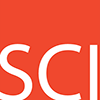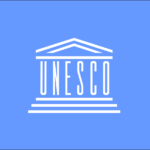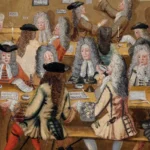Many organizations are committed to improving the future of open science, and many ideas and policies have been put in place to try to achieve this goal. Yet no single agency is leading the coordination of these efforts; there are a dizzying array of ideas about what “open science” even means and how various goals and outcomes should be achieved; and scientists themselves have not been well represented in most of the policy reform proposals to date.
The Open Scholarship Initiative (OSI) has been studying open scholarship (which includes open science) since late 2014, working in an official capacity with the United Nations Educational, Scientific and Cultural Organization (UNESCO) to develop a better understanding of the broad range of perspectives in research communication and understand how the world can make rapid, sustainable progress toward more open research.
Today, OSI released its open science recommendations for consideration by UNESCO, representing the culmination of five years of OSI’s international consultations with over 400 of the world’s top experts in all related fields, from university-based research to libraries to publishers, scholarly societies, funders, and more—18 different stakeholder groups in all, spanning 28 countries and over 250 leading institutions. UNESCO is designing an open science plan for review by the United Nations General Assembly in late 2021, and requested input from OSI.
In its recommendations, OSI advises that UNESCO embrace the wide diversity of activity in the open science space, fill in the gaps in our understanding about open science, and build a framework for cooperation where the entire global science community can work together on common ground goals and interests. In doing this, UNESCO can either adopt OSI’s proposed approach (known as Plan A) as UN policy; use Plan A as a blueprint for eventual United Nations policy; or develop a similar United Nations policy that has the benefit of broader global input.
The general findings of the OSI group are threefold. First, open scholarship and open science are tremendously diverse and interconnected spaces. Reforming either will not be as simple as claiming that open is x, the solution is y, and the path to the future can be enforced by a unilaterally-developed mandate. Second, the solutions most likely to work and be optimally effective must be developed by all stakeholders working together. And third, ample common ground exists where the research community can come together to build an effective framework for global reform.
One conclusion that can be drawn from these recommendations is that UNESCO should not create policies that attempt to define open, or create narrow compliance requirements for open. Where deemed necessary, specific requirements should remain flexible to encourage uptake and adaptation that fit specific audiences. This approach, if adopted, would stand in stark contrast to current policies like the European Union’s Plan S, which have prescribed contentious and narrow solutions for complying with open.
In addition to advising UNESCO, OSI is also exploring whether other government science agencies can come together to work on a single common-ground approach to open science policy rather than continuing to work independently, developing a global patchwork of policies with dissimilar goals.
“Our efforts to create a strong and robust future for open science will continue to be stuck in first gear,” says Glenn Hampson, OSI’s director, “unless we can start talking to each other and working with each other. There are too many urgent challenges ahead—the world needs science now more than ever.” As Jason Steinhauer, Villanova’s director of the Lepage Center for History in the Public Interest, notes in OSI’s report to UNESCO, “If we are guided by our common commitment to broadening and expanding access to knowledge, we can arrive at a collaborative future for open science and open research that is far greater than any single vision pursued alone.”
“At its core,” says Hampson, “this means recognizing that ‘open’ is simply a means to an end. Rather than staying bogged down in an ideological spat—which is where the open movement has been stuck for the last 20 years—we should work together to improve the future of research, not just for the world’s most privileged researchers but for all researchers and societies everywhere.” Our focus, he says, should be on building the best possible future for research. “The tools we use get there from here shouldn’t be pre-judged as being ‘right’ or ‘wrong’—there’s just too much diversity in this space to rely on one-size-fits-all solutions.”










